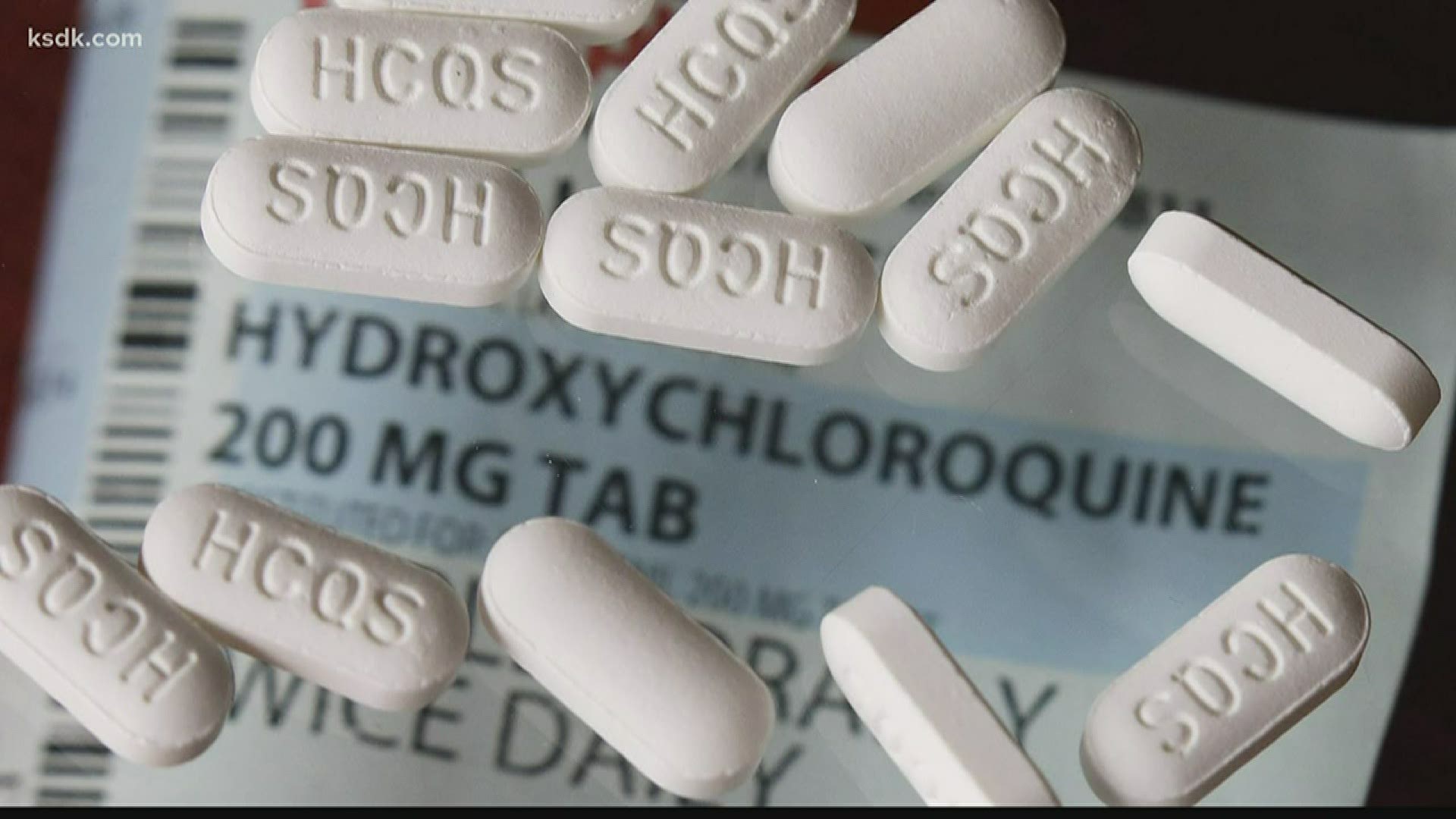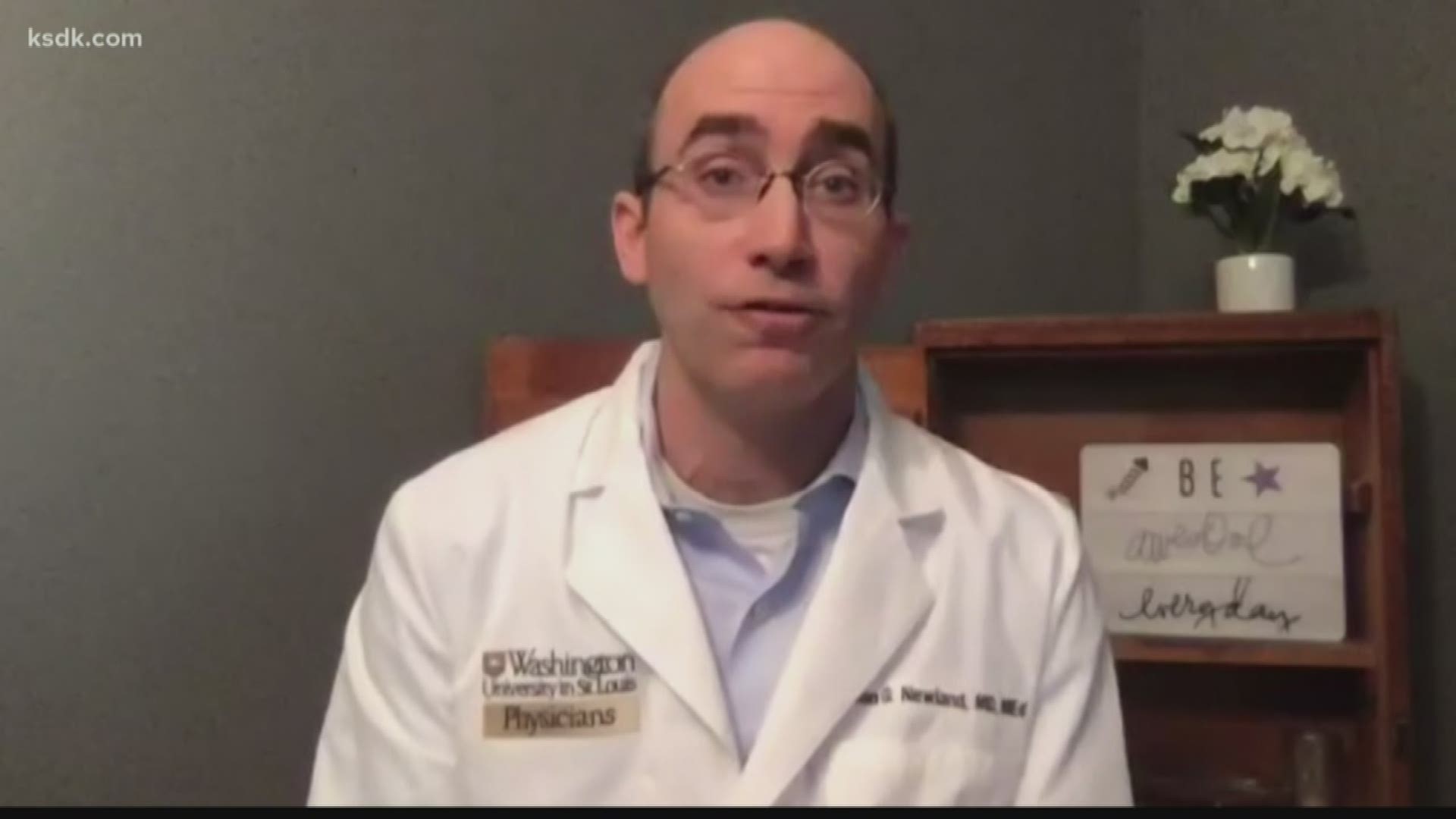ST. LOUIS — As the number of COVID-19 cases across the bi-state continues to grow, Washington University School of Medicine in St. Louis announced it is launching a clinical trial for patients hospitalized with COVID-19 at Barnes-Jewish Hospital.
"Drugs that already have been approved for other users -- if they also happen to work against coronavirus -- that is the best-case scenario because they are available and ready to use off the shelves," Dr. Steve Lawrence, Washington University Infectious Disease Specialist at Barnes-Jewish Hospital, said.
According to a press release, the trial will investigate the effectiveness of different combinations of the antimalarial drugs chloroquine and hydroxychloroquine and the antibiotic azithromycin in treating ill patients infected with the novel coronavirus.
Express Scripts donated the medications in an effort to accelerate research for a COVID-19 treatment.
The Food and Drug Administration recently gave emergency approval for hospitals across the country to use the two antimalarial drugs to treat severe cases of COVID-19. However, this treatment strategy remains unproven, the press release from Wash U said.
"It does seem to have some affect when it is essentially in a test tube working against a virus, it does seem to kill the virus," Dr. Lawrence said. "But what is very unclear is if it actually works in patients.'
Respiratory symptoms of COVID-19 include dry cough and shortness of breath. According to the Centers for Disease Control and Prevention (CDC), people should seek medical attention if symptoms progress to difficulty breathing, persistent pain or pressure in the chest, confusion or inability to arouse, and bluish lips or face.
Wash U said this trial is only for patients who are ill enough to be admitted to the hospital. The researchers plan to enroll 500 patients over the course of the study.
Lawrence said the trial will also look for side effects to determine if the medications would cause more harm than good.
"First off, anybody can have an allergic reaction to any new drugs," he explained. "That is always something to watch for here. But other things can include some rare instances of heart arrhythmias and/or effects on the blood cells and production of blood cells."
“To accelerate research for a COVID-19 treatment, we are supporting one of the top medical schools in the country in their efforts to quickly implement a clinical trial,” said Steve Miller, MD, chief clinical officer, Cigna. “This trial will help to establish whether these drugs are effective and, if so, to determine the optimal doses to help minimize the symptoms of COVID-19.”
According to Wash U, patients with confirmed cases of COVID-19 who choose to enroll in the trial will be randomly assigned to one of four treatment groups: One group will receive chloroquine alone; a second group will receive hydroxychloroquine alone; a third group will receive chloroquine and azithromycin; and a fourth group will receive hydroxychloroquine and azithromycin.
Wash U said all three medications are generic formulations long used to treat other conditions.
Chloroquine and hydroxychloroquine are used for the prevention and treatment of malaria. They also are prescribed, often in combination with other medications, for autoimmune disorders, such as lupus and rheumatoid arthritis. Azithromycin is an antibiotic used to treat many types of infections caused by bacteria, including respiratory, skin, ear and eye infections.
Lawrence also stresses the best tactic against COVID-19 is social distancing.
"Staying at home will make a much bigger difference than any hydroxychloroquine," he said.
MORE CORONAVIRUS STORIES


